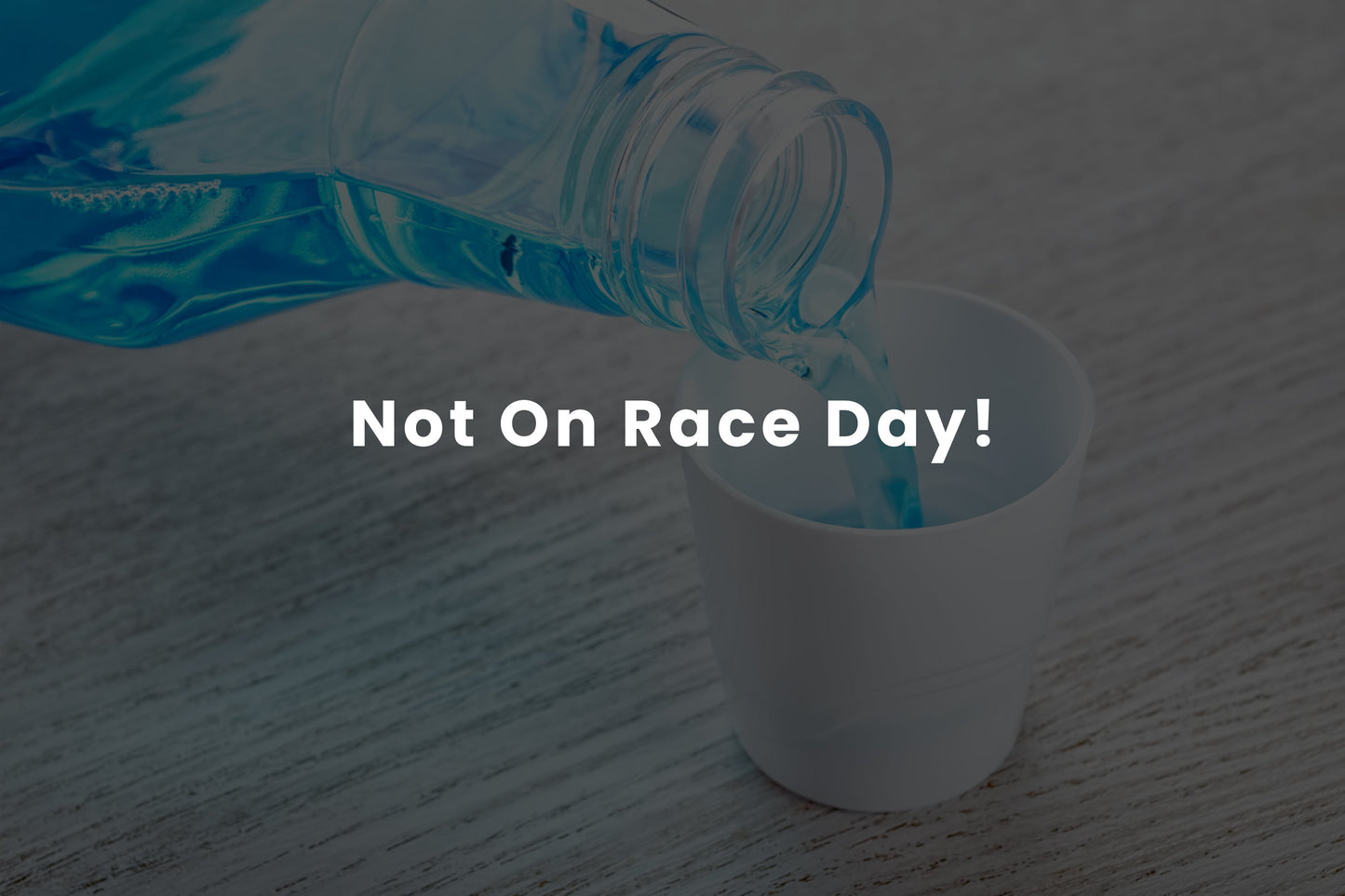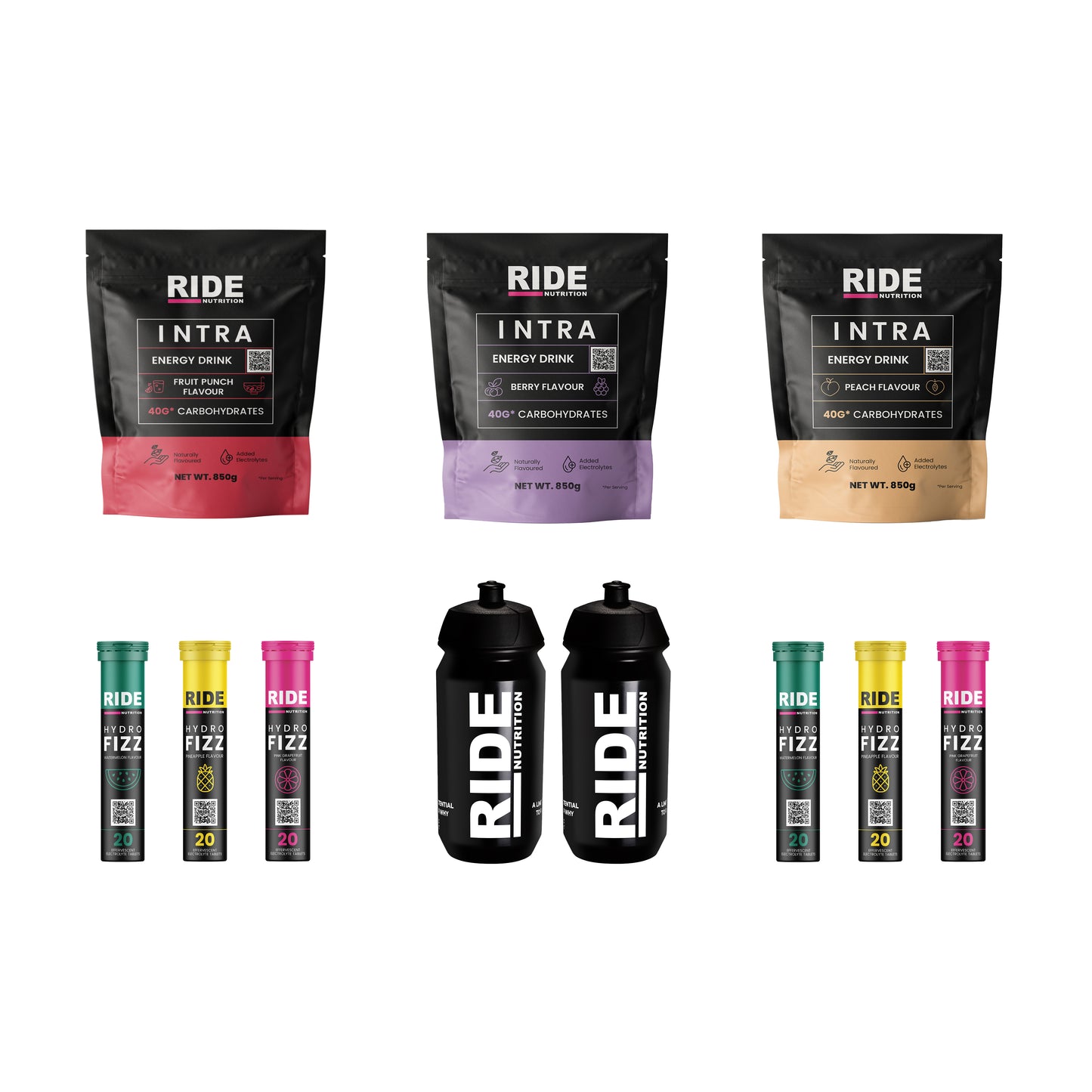
Yes You’ve Read It Correctly!
If you’re using nitrate supplements to increase your nitric oxide levels on race day, using antibacterial mouthwash can have a detrimental effect on nitric oxide production!
Recap of the Nitrate-Nitrite-Nitric Oxide Pathway
When ingested, nitrate circulates in blood plasma whilst approximately 25% is concentrated in saliva after being taken up by the salivary glands (Spiegelhalder et al., 1976). Anaerobic bacteria on the tongue is then responsible for the reduction of nitrate into nitrite (Govoni et al., 2008).
Once swallowed, some of the nitrite is reduced to form nitric oxide in the acidic conditions of the stomach, whilst the rest of the nitrite enters the systemic circulation. A number of proteins and enzymes then catalyse the reduction of nitrite to nitric oxide in the bloodstream and other tissues (Cosby et al., 2003).
Why Will Using Mouthwash Effect Nitric Oxide Production?
The use of antibacterial mouthwash is likely to disturb the bacteria on the tongue that is responsible for the reduction of nitrate to nitrite (Govoni et al., 2008).
Woessner et al. (2016) investigated the effect of mouthwash use following dietary nitrate ingestion. It was concluded that although plasma and salivary nitrate levels were not significantly affected, the use of antibacterial mouth wash severely decreased concentrations of plasma and salivary nitrite.
The resulting decrease in plasma and salivary nitrite is believed to underpinned by disruption to the commensal bacteria in the oral cavity. As previously mentioned this bacteria plays a huge role in the first step of the Nitrate-Nitrite-Nitric Oxide pathway as it is responsible for the conversion of nitrate to nitrite.
Reduced nitrite concentrations are likely to result in compromised nitric oxide production though this particular pathway.
Practical Implication
So if you’re looking to maximise the effects of nitrate supplementation, it may be an idea to ditch the mouthwash on the morning of event day!
*With this being said, the use of antibacterial toothpaste and mouthwash can be very important in reducing the build-up of plaque and maintaining good oral hygiene. It is therefore recommended to only avoid the use of these on specific occasions where the nitric oxide production is of more importance.*
References
Cosby, K., Partovi, K.S., Crawford, J.H., Patel, R.P., Reiter, C.D., Martyr, S., Yang, B.K., Waclawiw, M.A., Zalos, G., Xu, X. and Huang, K.T., 2003. Nitrite reduction to nitric oxide by deoxyhemoglobin vasodilates the human circulation. Nature medicine, 9(12), pp.1498-1505.
Govoni, M., Jansson, E.Å., Weitzberg, E. and Lundberg, J.O., 2008. The increase in plasma nitrite after a dietary nitrate load is markedly attenuated by an antibacterial mouthwash. Nitric oxide, 19(4), pp.333-337.
Spiegelhalder, B., Eisenbrand, G. and Preussmann, R., 1976. Influence of dietary nitrate on nitrite content of human saliva: possible relevance to in vivo formation of N-nitroso compounds. Food and cosmetics toxicology, 14(6), pp.545-548.
Woessner, M., Smoliga, J.M., Tarzia, B., Stabler, T., Van Bruggen, M. and Allen, J.D., 2016. A stepwise reduction in plasma and salivary nitrite with increasing strengths of mouthwash following a dietary nitrate load. Nitric oxide, 54, pp.1-7.

